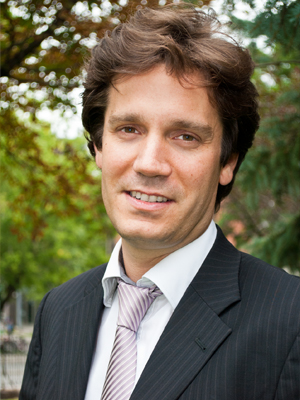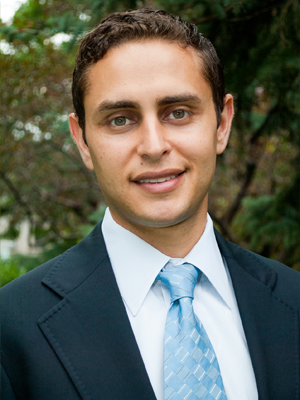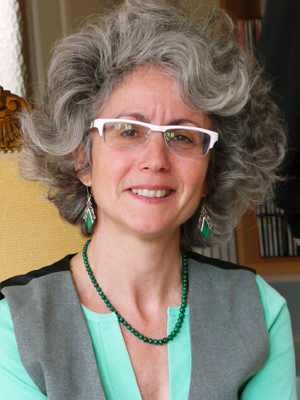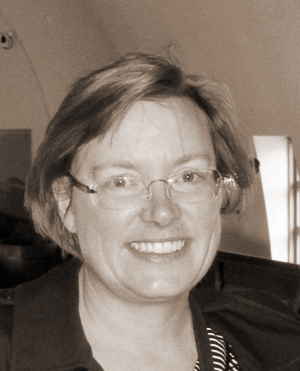A contract law specialist, a professor in public international law, a comparativist and an expert in arbitration: Focus online asks the Faculty’s four newest members about their work and their play.
Vincent Forray, Assistant Professor
 Arrive à McGill de: Université de Savoie, France.
Arrive à McGill de: Université de Savoie, France.
Intérêts de recherche: J’ai consacré ma thèse de doctorat au droit des contrats et j’ai écrit dans ce domaine.
Je m’intéresse aux « activités juridiques critiques », c’est-à-dire à ce qui favorise l’émergence des altérités en droit, à animer des courants contradictoires, et aussi, bien sûr à accéder aux « significations implicites, aux déterminations silencieuses, aux contenus obscurs » de ce que disent les juristes du droit.
Ceci fait que la question de l’enseignement du droit est constamment au centre de mes préoccupations (que dois-je dire aux étudiants ? Comment faut-il leur dire ce que je sais?…) Je suis co-fondateur – avec Sebastien Pimont – de Jurisprudence – Revue critique.
Quand avez-vous su que vous vouliez une carrière universitaire? Je ne suis pas sûr d’avoir jamais voulu en faire une… Disons que l’idée selon laquelle la lecture, l’écriture, la discussion et le dialogue pouvaient permettre de gagner sa vie m’a séduit assez tôt dans mes études.
Comment votre travail profite-t-il à Monsieur Tout-Le-Monde? Voilà LA question. Quiconque serait convaincu de sa propre utilité sociale m’apparaitrait bien présomptueux… Disons que je crois que les universités sont indispensables comme lieux de libre connaissance. Et de là, j’en viens à ce qui m’apparait essentiel.
Je crois que les universités sont utiles comme contre-pouvoirs dans un monde politique, qui a naturellement tendance à ne percevoir le savoir que du point de vue des services que celui-ci lui rend.
Quant à moi, j’aimerai contribuer à élargir l’horizon théorique et intellectuel de ceux que j’ai la chance de rencontrer, et à faciliter les représentations du monde.
Nommez le premier item sur votre liste de choses à faire et à voir à Montréal? À égalité : POP Montréal, une bonne fromagerie, l’oratoire Saint-Joseph et fumer un cigare sur les bords du Canal Lachine.
Rouge ou blanc? Thé ou café? Je ne bois jamais ; et je ne dis jamais le contraire de la vérité…
Quelle est la chose la plus délirante que vous avez commise durant vos études de droit? Il y a tout ce que je ne peux pas dire parce que je suis prof ; et tout ce que je ne peux pas dire parce que je suis aussi père de famille…
Une chose cependant. La veille de mon dernier examen pour l’obtention de la maitrise (droit social, convocation à 8 heures du matin), je suis allé voir Springsteen à Paris. Merveilleux concert. Quant à l’examen…
Mark Fathi Massoud, Assistant Professor
 Coming to McGill from: University of California, Santa Cruz (where I was Assistant Professor in the Department of Politics and Legal Studies Program). Prior to that, I was a postdoctoral fellow at the Center on Democracy, Development, and the Rule of Law, at Stanford University. Prior to that, I completed my JD and PhD in Jurisprudence and Social Policy at the University of California, Berkeley.
Coming to McGill from: University of California, Santa Cruz (where I was Assistant Professor in the Department of Politics and Legal Studies Program). Prior to that, I was a postdoctoral fellow at the Center on Democracy, Development, and the Rule of Law, at Stanford University. Prior to that, I completed my JD and PhD in Jurisprudence and Social Policy at the University of California, Berkeley.
Research interests: Law and society; human rights; the development of law and civil society in conflict settings and fragile states; empirical approaches to human rights; ethnographic methods; colonial and post-colonial law; law and development in Sudan
When did you know you wanted to follow this career path? I have for at least 15 years been interested in the relationship between legal and social change. It solidified during a research trip to South Africa shortly after the signing of its post-apartheid constitution. It continued a decade later in Sudan, where I conducted research for my current book project on how law constructs and retrenches authority in fragile states. My research focuses broadly on the development of law and civil society in conflict, post-conflict, and non-democratic settings.
How will your work benefit the average person? As long as the average person cares about humanitarian crises and its possible solutions, my work reveals the complex ways in which law plays a role – what it does, what it fails to do, and the challenges faced by legal activists.
Top thing on your to-do or to-see list in Montreal? Cycling Le P’Tit Train du Nord, and enjoying concerts at the new home for l’Orchestre symphonique de Montréal.
Red or white; coffee or tea? Both! Tea over coffee, with a preference for rooibos. Fresh juice is best.
Most outrageous thing you did in law school: Leaving Berkeley to spend a summer in Sudan.
Ruth Sefton-Green, Senior Wainwright Fellow
 Coming to McGill from: Ecole de droit de la Sorbonne, Université Paris 1 (Panthéon-Sorbonne)
Coming to McGill from: Ecole de droit de la Sorbonne, Université Paris 1 (Panthéon-Sorbonne)
Research interests: Comparative law in general, comparative law of obligations, European private law
When did you know you wanted to follow this career path? When I first started teaching while writing my PhD and after practising as a lawyer in the UK and France.
How will your work benefit the average person? Understanding other legal traditions enables us to put one’s own into perspective and enhances a perception of what is behind the legal rules.
Top thing on your to-do or to-see list in Montreal? See my friends again and go for a walk on the Mont Royal.
Red or white; coffee or tea? It depends on the circumstances and the time of day.
Most outrageous thing you did in law school: I can’t say!
Andrea Bjorklund, Visiting Professor, funded by the L. Yves Fortier Chair in International Arbitration
 Coming to McGill from: I will be coming to McGill from the University of California in Davis, where I have been teaching in the law school for eight years. Prior to that time I was a fellow at the University of Chicago, and before that I practiced law in Washington, D.C.
Coming to McGill from: I will be coming to McGill from the University of California in Davis, where I have been teaching in the law school for eight years. Prior to that time I was a fellow at the University of Chicago, and before that I practiced law in Washington, D.C.
Research interests: My research interests lie in the field of international investment, international dispute resolution, and the international sale of goods.
When did you know you wanted to follow this career path? Ever since my first trip abroad when I was nine I knew that I enjoyed learning about the different ways people from various countries approached ideas and even how they approached seemingly mundane everyday activities. It seemed natural to me to try to practice international law, and I’ve been able to do that both from the perspective of private practice where I worked in what is usually viewed as private international law and from the vantage point of the U.S. Department of State Legal Adviser’s Office, which involved practicing true public international law
How will your work benefit the average person? My work helps to facilitate the cross-border flow of capital and goods. In the most ideal sense, this helps to make products available to the consumer more cheaply, and helps foster innovation by encouraging cross-border cooperation between businesses and entrepreneurs.
Top thing on your to-do or to-see list in Montreal? I’ve been to Montreal several times and love the city. One thing I haven’t done is ride a boat down the St. Lawrence, and I would like to do that during my stay.
Red or white; coffee or tea? I prefer red to white and must have my coffee in the morning.
Most outrageous thing you did in law school: When I was in law school, I shared a flat with three other women. We had an “early 80’s party.” Nearly all of our 180 classmates came, and one of my roommates had spent days making mix tapes. Everyone dressed appropriately – think Madonna in her early days.
Photo credit (photo 1 and photo 2): Lysanne Larose.
